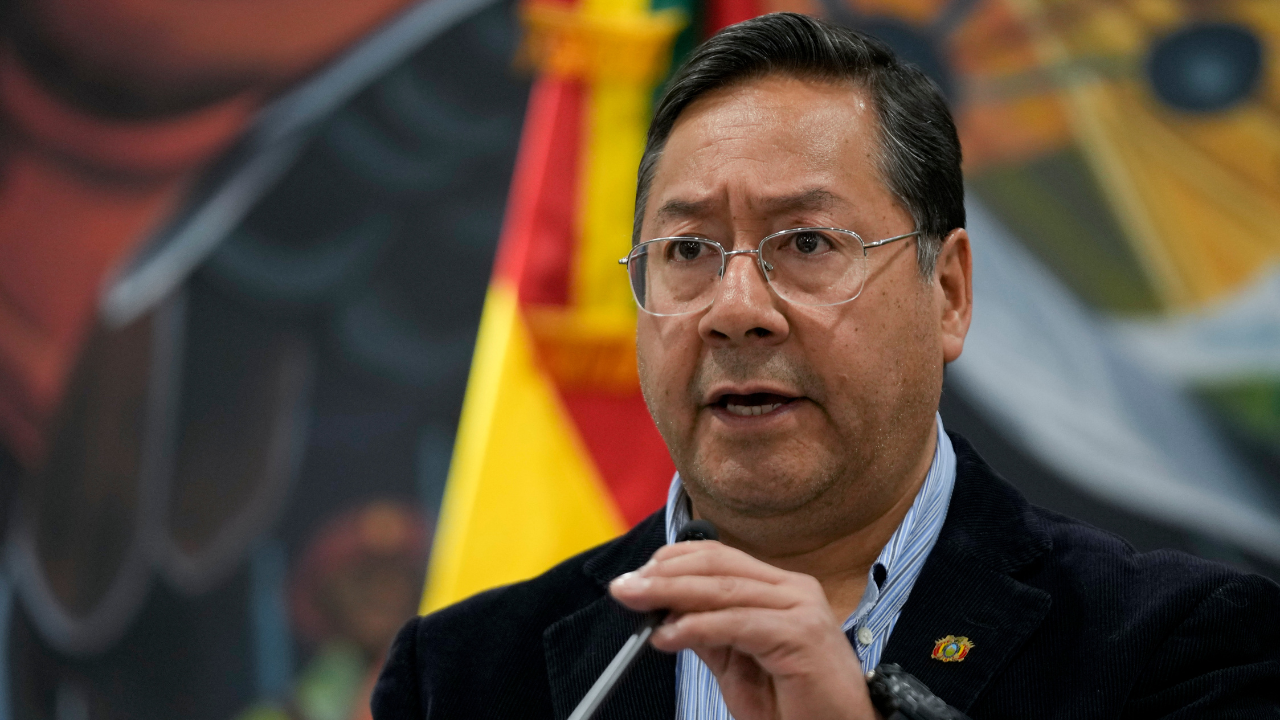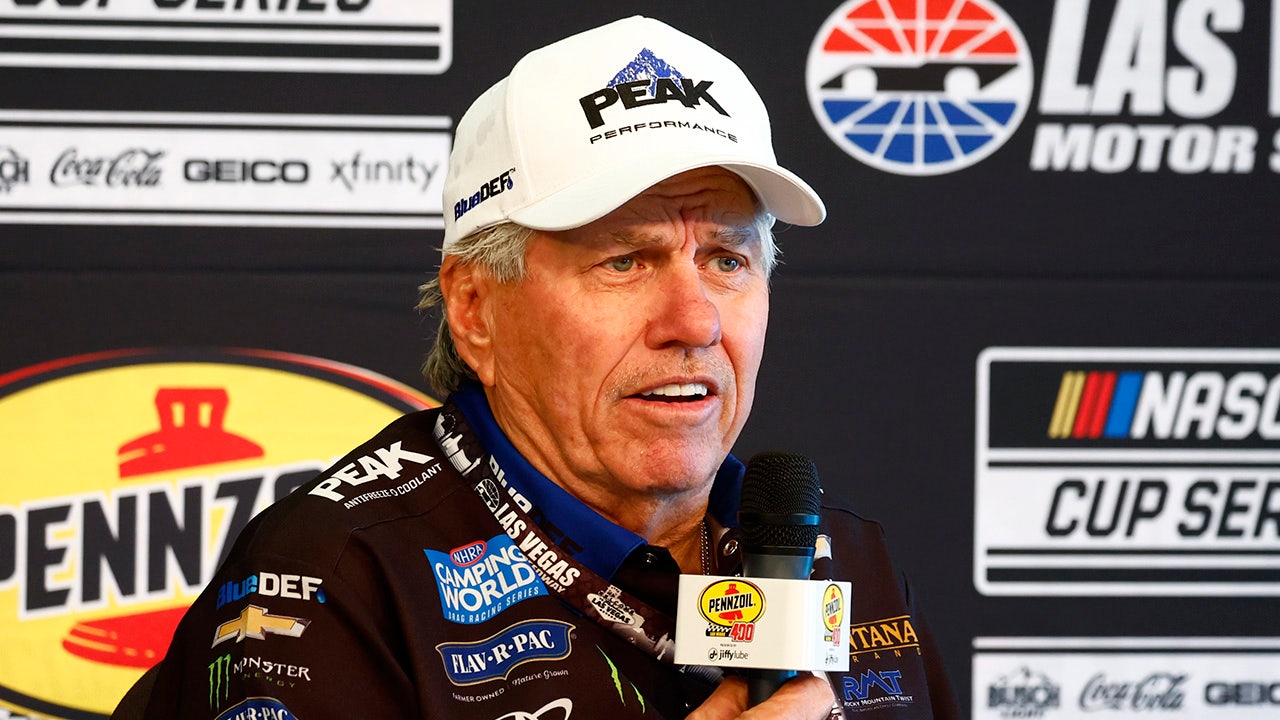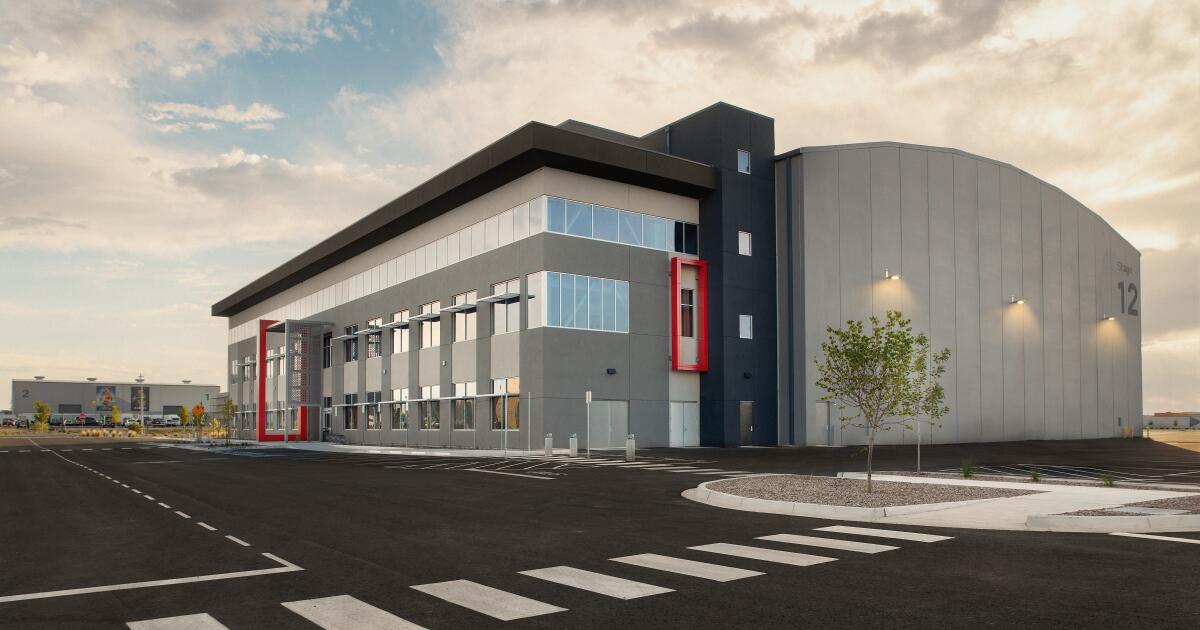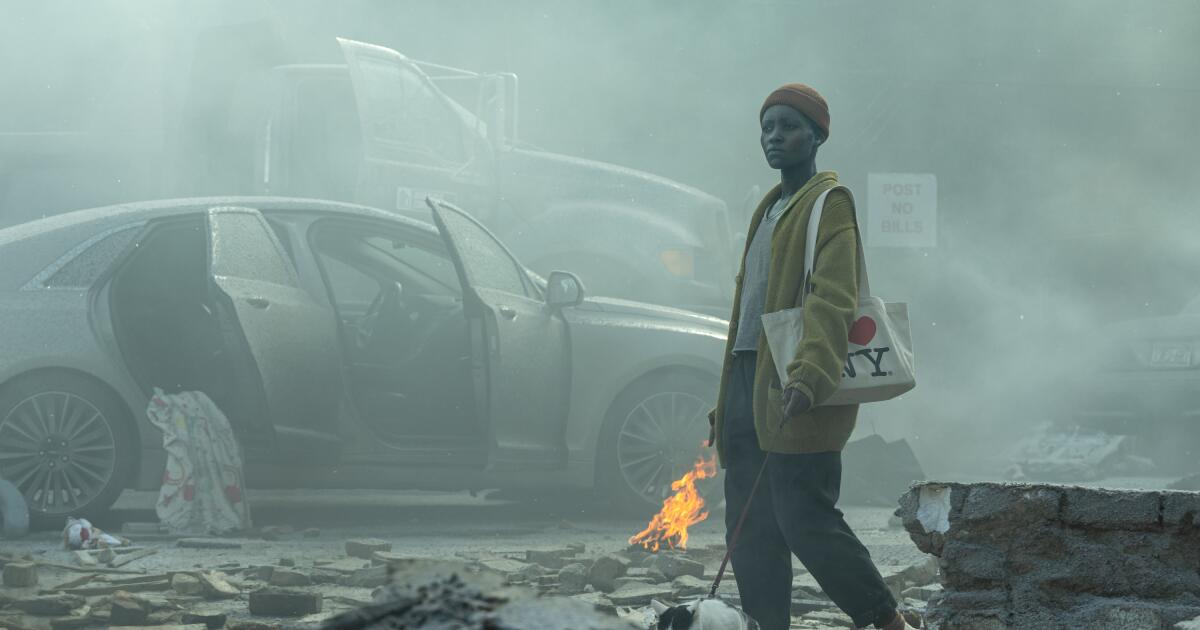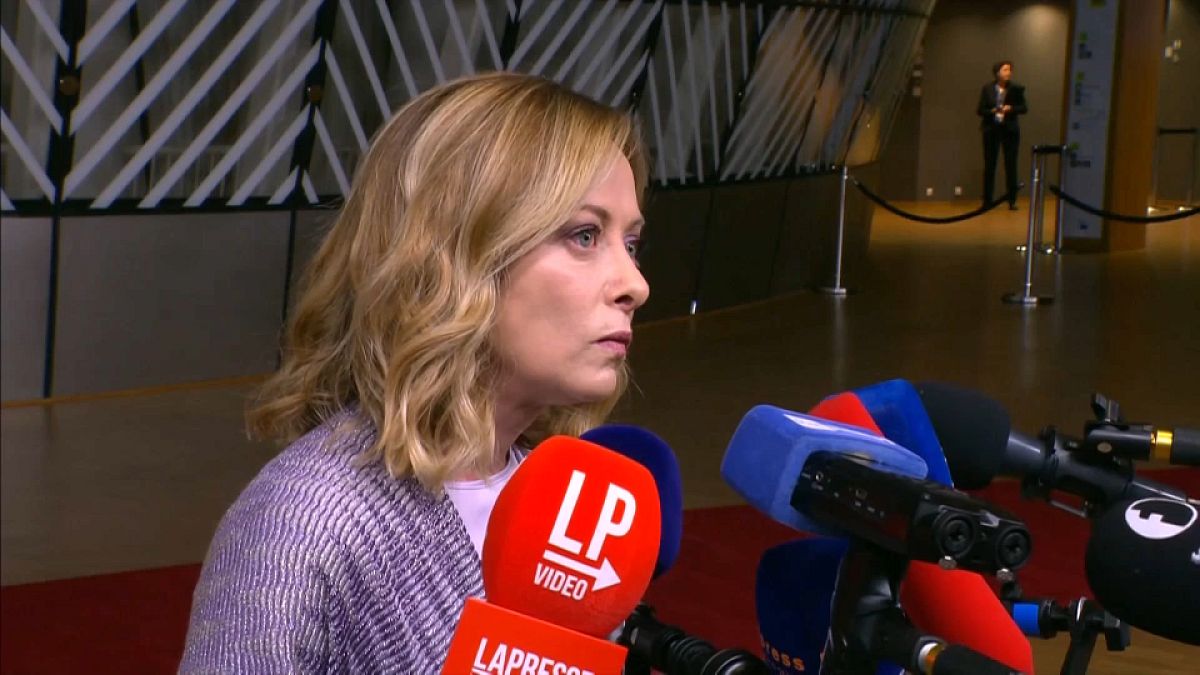Politics
Supreme Court wipes out anti-corruption law that bars officials from taking gifts for past favors

The Supreme Court on Wednesday struck down part of a federal anti-corruption law that makes it a crime for state and local officials to take gifts valued at more than $5,000 from a donor who had previously been awarded lucrative contracts or other government benefits thanks to the efforts of the official.
By a 6-3 vote, the justices overturned the conviction of a former Indiana mayor who asked for and took a $13,000 payment from the owners of a local truck dealership after he helped them win $1.1 million in city contracts for the purchase of garbage trucks.
In ruling for the former mayor, the justices drew a distinction between bribery, which requires proof of an illegal deal, and a gratuity that can be a gift or a reward for a past favor. They said the officials may be charged and prosecuted for bribery, but not for simply taking money for past favors if there was no proof of an illicit deal.
“The question in this case is whether [the federal law] also makes it a crime for state and local officials to accept gratuities — for example, gift cards, lunches, plaques, books, framed photos or the like — that may be given as a token of appreciation after the official act. The answer is no,” said Justice Brett M. Kavanaugh, writing for the majority.
Despite his reference to token gifts such as lunches and framed photos, the federal law was triggered only by payments of more than $5,000.
But the court’s conservative majority said the law in question was a “bribery statute, not a gratuities law.” Kavanaugh said federal law “leaves it to state and local governments to regulate gratuities to state and local officials.”
Justices Elena Kagan, Sonia Sotomayor and Ketanji Brown Jackson dissented.
“Officials who use their public positions for private gain threaten the integrity of our most important institutions,” Jackson wrote in dissent. The law as written “poses no genuine threat to common gift giving” but it “clearly covers the kind of corrupt (albeit perhaps non-quid pro quo) payment [the mayor] solicited after steering the city contracts to the dealership.”
The ruling could have a broad impact. About 20 million local and state officials are covered by the federal anti-corruption law, including officials at hospitals and universities that receive federal funds.
Justice Department lawyers told the court that for nearly 40 years, the anti-bribery law has been understood to prohibit payments to officials that “rewarded” them for having steered contracts to the donors.
The Supreme Court justices have faced heavy criticism recently for accepting undisclosed gifts from wealthy patrons. Justice Clarence Thomas regularly took lavish vacations and private jet flights that were paid for by Texas billionaire Harlan Crow. Justice Samuel A. Alito Jr. took a fishing trip to Alaska in 2008 aboard a private plane owned by Paul Singer, a hedge fund billionaire.
The high court has long held that criminal laws restricting “illegal gratuities” to federal officials require proof that the gifts were given for a specific “official act,” not just because of the official’s position.
The Indiana mayor was charged and convicted of taking the $13,000 payment because of his role in helping his patrons win city contracts.
Congress in 1986 extended the federal bribery law to cover officials of state or local agencies that receive federal funds. The measure made it a crime to “corruptly solicit or demand … or accept … anything of value of $5,000 or more … intending to be influenced or rewarded in connection with any business or transaction.”
Prosecutors said James Snyder was heavily in debt and behind in paying his taxes when he became mayor of Portage, Ind., in 2012. The city needed new garbage trucks, and the mayor took over the required public bidding. He spoke regularly with two brothers who owned a local truck dealership that also had financial problems, and he designed the bidding process so that only their two new trucks would meet all of its standards. He also arranged to have the city buy an older truck that was on their lot.
Two weeks after the contracts were final, the mayor went to see the two brothers and told them of his financial troubles. They agreed to write him a check for $13,000 for undefined consulting services.
An FBI investigation led to Snyder’s indictment, his conviction and a 21-month prison sentence.
The former mayor argued that an after-the-fact gift should not be a crime, but he lost before a federal judge and the U.S. appeals court in Chicago.
The high court agreed to hear his appeal in Snyder vs. U.S. because appeals courts in Boston and New Orleans had limited the law to bribery only and not gratuities that were paid later.
In recent years, the Supreme Court has repeatedly limited the scope of public corruption laws and often in unanimous rulings. The common theme is that the justices concluded the prosecutions went beyond the law.
Last year, the court was unanimous in overturning the corruption convictions of two New York men who were former aides or donors to then-Gov. Andrew Cuomo, a Democrat. The court noted that one of the defendants convicted of taking illicit payments did not work for the state during that time.
Four years ago, the justices were unanimous in overturning the convictions of two aides to then-New Jersey Gov. Chris Christie, a Republican, who were charged with conspiring to shut down lanes to the George Washington Bridge into New York City. The court said they were wrongly convicted of fraud because they had not sought money or property, which is a key element of a fraud charge.
In 2016, the court overturned the corruption conviction of former Virginia Gov. Bob McDonnell, a Republican. While the governor took $175,000 in gifts from a business promoter, he took no official actions to benefit the donor, the court said.

Politics
Biden aims to change negative narrative after rough debate with Trump
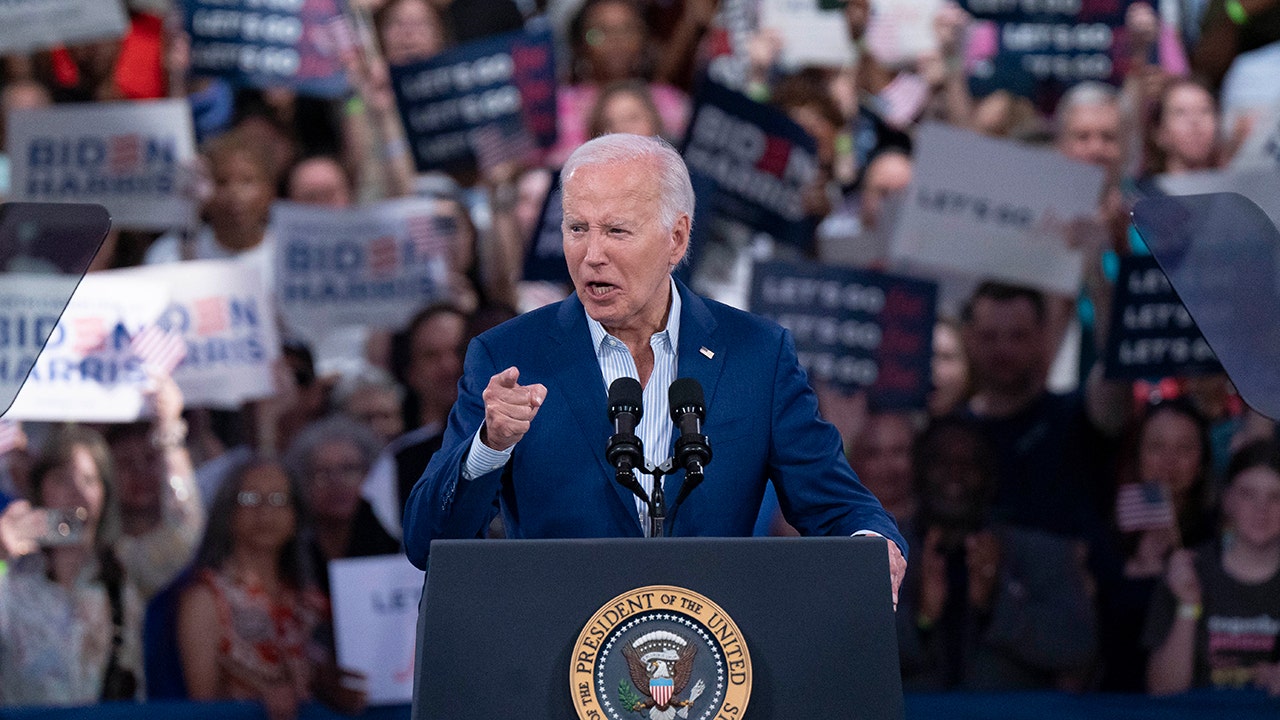
President Biden, on the day after the most consequential political performance of his decades-long career, aimed to address Democratic Party panic after his disastrous debate performance in his first faceoff with former President Trump.
“I know I’m not a young man, to state the obvious,” Biden, who at 81 is the oldest president in the nation’s history, told cheering supporters at a Friday afternoon rally in the crucial battleground state of North Carolina.
“Folks, I don’t walk as easy as I used to. I don’t speak as smoothly as I used to. I don’t debate as well as I used to,” Biden acknowledged. “But I know what I do know. I know how to tell the truth. I know right from wrong. And I know how to do this job. I know how to get things done. And I know, like millions of Americans know, when you get knocked down you get back up.”
And the president, pointing to his 2024 rematch with Trump, emphasized, “I would not be running again if I did not believe with all my heart and soul that I can do this job.”
A RASPY BIDEN DELIVERS A HALTING DEBATE PERFORMANCE IN SHOWDOWN WITH TRUMP
President Biden speaks at a post-debate campaign rally June 28, 2024, in Raleigh, N.C. (Allison Joyce/Getty Images)
As Biden worked to calm his party, his campaign repeatedly highlighted what it described as record-breaking fundraising both during and after the debate as it seemingly aimed to deflect from a brutal narrative coming out of the showdown in Atlanta.
WHAT THE NEW YORK TIMES IS ASKING BIDEN TO DO
And Biden’s campaign on Friday morning announced that it hauled in $14 million in fundraising Thursday and Friday morning, which it highlighted as “a sign of strength of our grassroots support.”
Struggling with a raspy voice and delivering rambling answers, Biden struggled during portions of the debate. The president did sharpen his answers as the debate progressed, calling out his Republican predecessor in the White House for numerous falsehoods throughout the 90-minute debate.
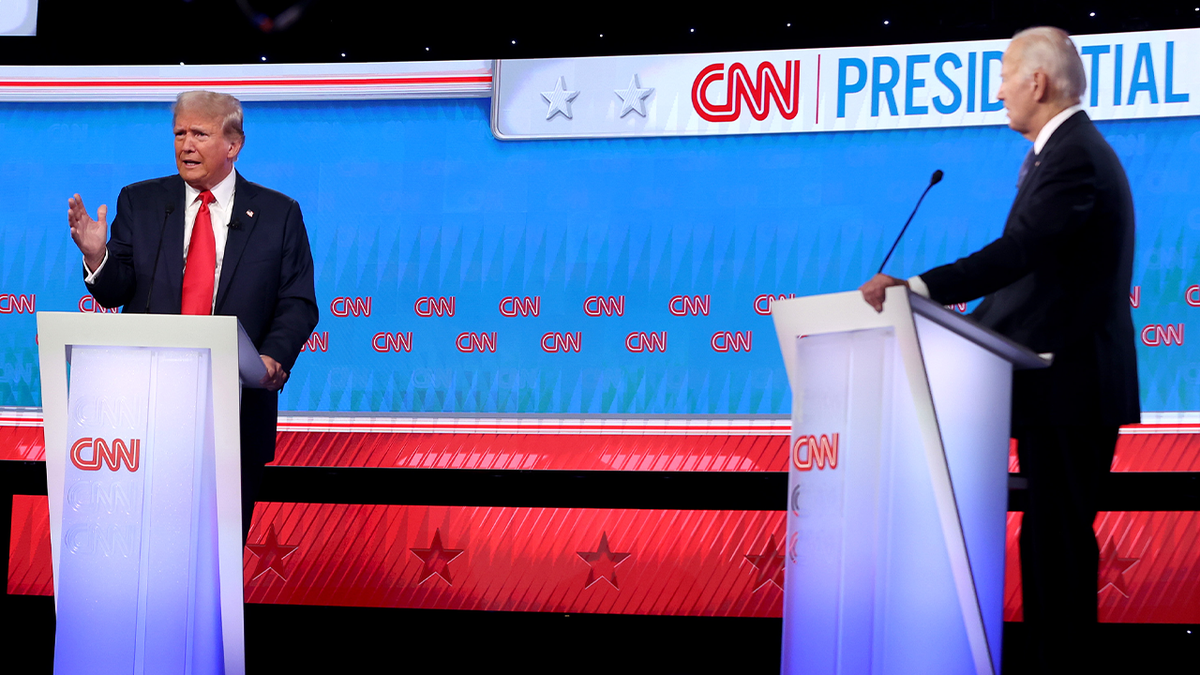
President Biden (right) and former President Trump participate in the CNN Presidential Debate in Atlanta. (Justin Sullivan/Getty Images)
But Biden’s uneven and, at times, halting performance grabbed the vast majority of headlines from the debate and sparked a new round of calls from political pundits and publications and some Democrats for the president to step aside as the party’s standard-bearer. Top Biden allies pushed back against such talk as they defended the president and targeted Trump for lying throughout the debate.
And the Biden campaign spotlighted that the 11 p.m. ET hour Thursday night — the one hour after the debate — “was the single best hour of fundraising since the campaign’s launch in April 2023.”
WHAT BIDEN SAID AT HIS FIRST POST-DEBATE RALLY
A Biden campaign adviser, who asked to remain anonymous to speak more freely, told Fox News the fundraising is “an important sign that there’s a bit of disconnect between national narratives and where supporters are.”
Following his rally in Raleigh, North Carolina, the president and first lady Jill Biden traveled to New York City, where they joined superstars Elton John and Katy Perry and top Democratic Party elected officials to unveil the city’s Stonewall National Monument Visitor Center. The grand opening was timed to kick off New York City’s Pride weekend and mark the 55th anniversary of the historic rebellion that marked a turning point for LGBTQ+liberation.
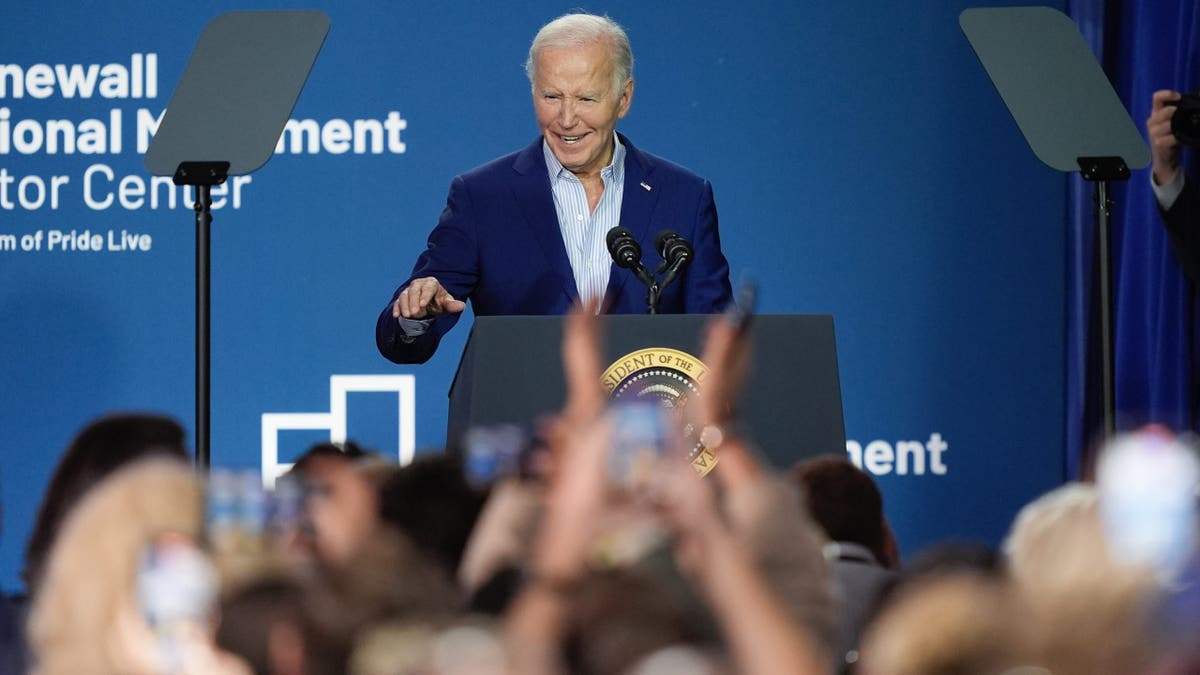
President Biden speaks during the grand-opening ceremony for the Stonewall National Monument Visitor Center Friday, June 28, 2024, in New York. (AP Photo/Julia Nikhinson)
Biden then headlined a campaign fundraiser Friday evening in New York City that his campaign touted was “the largest LGBTQ fundraising event in political history.”
On Saturday, the president was scheduled to attend two more top dollar fundraisers in the wealthy communities of East Hampton, New York, and Red Bank, New Jersey.
“Biden‘s record grassroots fundraising from the day of the debate is critical. It helps blunt the criticism from Biden’s performance,” veteran political strategist and Democratic National Committee member Maria Cardona told Fox News.
Cardona, a top Biden supporter, said spotlighting the fundraising “reminds Democrats that there is enthusiasm for the president and urgency to make sure that the liar and criminal Donald Trump doesn’t get close to the Oval Office.”
A Democratic strategist and presidential campaign veteran said team Biden’s focus on fundraising “is their best and maybe their only card to play.”
But the strategist, who was granted anonymity to speak more freely, emphasized “there’s no amount of money that can reverse the damage that was done at the debate and the president confirming everyone’s worst suspicions and fears about him and his age and not being up to the job. Period.”
But Trump campaign senior adviser Brian Hughes discounted the fundraising.
“As of last week, the Biden campaign has spent $100 million on cable, TV and radio. They’ve spent money on a bloated organization. Yet President Trump’s lead has grown in battleground states, and now we see polling and enthusiasm on the ground putting Virginia and Minnesota in play for the GOP nominee for the first time in many election cycles,” Hughes told Fox News.
The Trump campaign, enjoying the post-debate narrative, had no need to immediately emphasize its own fundraising.
But the campaign told Fox News Friday afternoon it brought in $8 million the day of the debate.
Republican National Committee Chair Michael Whatley, a top Trump ally, said hours earlier in an interview on Fox News’ “Fox and Friends” that “the donations have been coming in, very strong, very steady. And that’s because the people saw his positioning last night during the debate. The donations, especially the small dollar online donations that we’re getting in right now, are really a reflection of the enthusiasm that the president brings to the campaign.”
And Trump campaign senior adviser Chris LaCivita told Fox News Digital Thursday night the debate performance was “added rocket fuel” to the former president’s fundraising and in “motivating the troops.”
Dan Eberhart, an oil drilling CEO and a prominent Republican donor, is raising money for Trump after earlier supporting Florida Gov. Ron DeSantis in the GOP presidential nomination race.
“The donors I have texted with are now more confident of a Trump win,” Eberhart said. “For any donors that were still on the sideline, last night was the push they needed to put their chips on Trump.”
Get the latest updates from the 2024 campaign trail, exclusive interviews and more at our Fox News Digital election hub.
Politics
Column: A Supreme Court ruling may help Jan. 6 rioters. Here's why it's less likely to help Trump
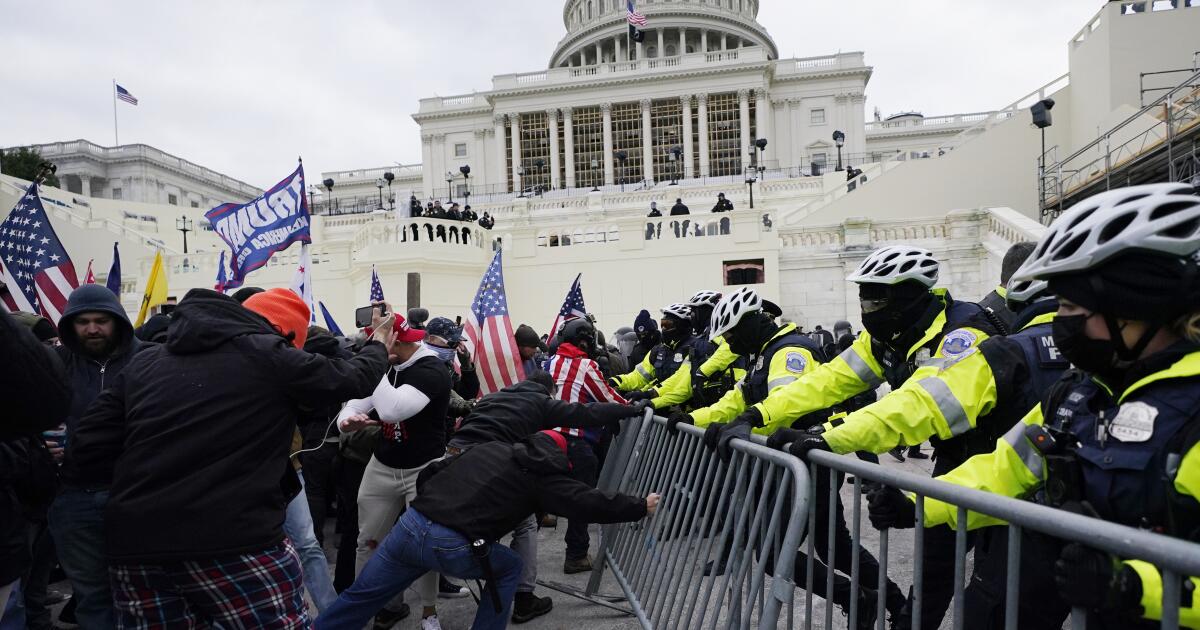
The Supreme Court’s decision in Fischer vs. United States, which came down among a bevy of blockbuster opinions Friday, was much anticipated for its potential impact on the prosecutions of hundreds of Jan. 6 rioters as well as former President Trump, who was charged under the same law. The court’s ruling was largely of a piece with the conservative justices’ proclivity for narrowing criminal laws they perceive as imprecise and likely to trap the unwary. The majority opinion by Chief Justice John G. Roberts Jr. contends that the Justice Department’s position on the obstruction statute at hand would “criminalize a broad swath of prosaic conduct.”
The decision is of course good news for Joseph Fischer, a Jan. 6 defendant who moved to dismiss one of the charges against him. Fischer barged into the Capitol on that day and was also charged with assaulting a federal officer, among other offenses. But the court held that he could not be charged under a federal law against obstructing an official proceeding for joining the melee that delayed the certification of the 2020 presidential election, ruling that the law is limited to conduct affecting the integrity or availability of records that could be evidence in an official proceeding.
Trump will certainly try to argue that the court’s decision also requires dismissal of two counts against him under the same law in the federal Jan. 6 case. Many of the rioters were, like Fischer, charged under the statute and could benefit from the ruling as well. But the decision isn’t likely to favor the majority of the marauders, and it’s even less likely to help Trump.
In the case of the rioters, a study in Just Security persuasively suggests that even if the statute is unavailable to charge them in the wake of the Fischer decision, the government can still prosecute the same conduct in other ways.
The ruling probably won’t be useful to Trump for another reason.
The lawyerly debate in Fischer comes down to the meaning of the word “otherwise.” Following a section of the law that prohibits altering or mutilating a record, the law goes on to criminalize conduct that “otherwise obstructs, influences or impedes any official proceeding.“ The question is whether the law thereby applies to any obstruction of an official proceeding or only to acts that affect the integrity or availability of records to be used in the proceeding.
But Trump’s alleged conduct certainly affected the integrity or availability of records, namely the valid slates of presidential electors. His purported scheme was designed to undermine the legal impact of those slates and replace them with fraudulent certificates forged at the behest of his inner circle.
Justice Ketanji Brown Jackson’s concurring opinion in the case underscores this point. After endorsing the majority’s understanding of “otherwise,” she concludes that Fischer might still be charged under the statute because the “official proceeding” in question “plainly used certain records, documents, or objects — including, among others, those relating to the electoral votes themselves.”
Jackson’s hypothetical analysis concerns Fischer himself, but it seems she also means it to encompass the conduct of the former president. While Trump is not alleged to have destroyed or altered a document, he is alleged to have “otherwise” impaired the legal effectiveness of the certificates.
The dissenting opinion in the case, authored by Justice Amy Coney Barrett and joined by Justices Sonia Sotomayor and Elena Kagan, is an interesting postscript. Barrett argues that the government’s reading of the text of the statute might be expansive but is in keeping with its plain meaning. The opinion is among those suggesting Barrett, a Trump appointee, is staking out the center of the court in certain important cases.
But the most pressing question raised by this decision and the presidential immunity opinion expected Monday is whether they will undermine the various criminal charges against the former president. The bottom line in this case is that it shouldn’t, and I don’t think it will. Trump will surely move to dismiss the charges on this basis, but I expect U.S. District Judge Tanya Chutkan to reject that argument, which would allow the case to proceed as charged — unless, of course, the defendant returns to the White House and makes the entire prosecution go away.
Harry Litman is the host of the “Talking Feds” podcast and the Talking San Diego speaker series. @harrylitman
Politics
Trump says 'biggest problem' not Biden's age, 'decline,' but his policies in first appearance since debate

At former President Trump’s first rally since the presidential debate, he argued the nation’s “biggest problem” is not President Biden’s age and “decline,” but his destructive policies.
Speaking to a crowd of more than 1,000 at Historic Greenbrier Farms in Chesapeake, Virginia, Friday, Trump took a victory lap after the first 2024 presidential debate.
Trump told supporters every voter should ask one question before heading to the polls Nov. 5.
“The question every voter should be asking themselves today is not whether Joe Biden can survive a 90-minute debate performance, but whether America can survive four more years of crooked Joe Biden in the White House,” he said.
TRUMP, BIDEN SPAR OVER GOLF HANDICAPS AS THEY TRY TO CONVINCE VOTERS THEY ARE NOT TOO OLD FOR THE PRESIDENCY
Former President Trump speaks during a campaign rally at Historic Greenbrier Farms in Chesapeake, Va., July 28, 2024. (Jim Watson/AFP via Getty Images)
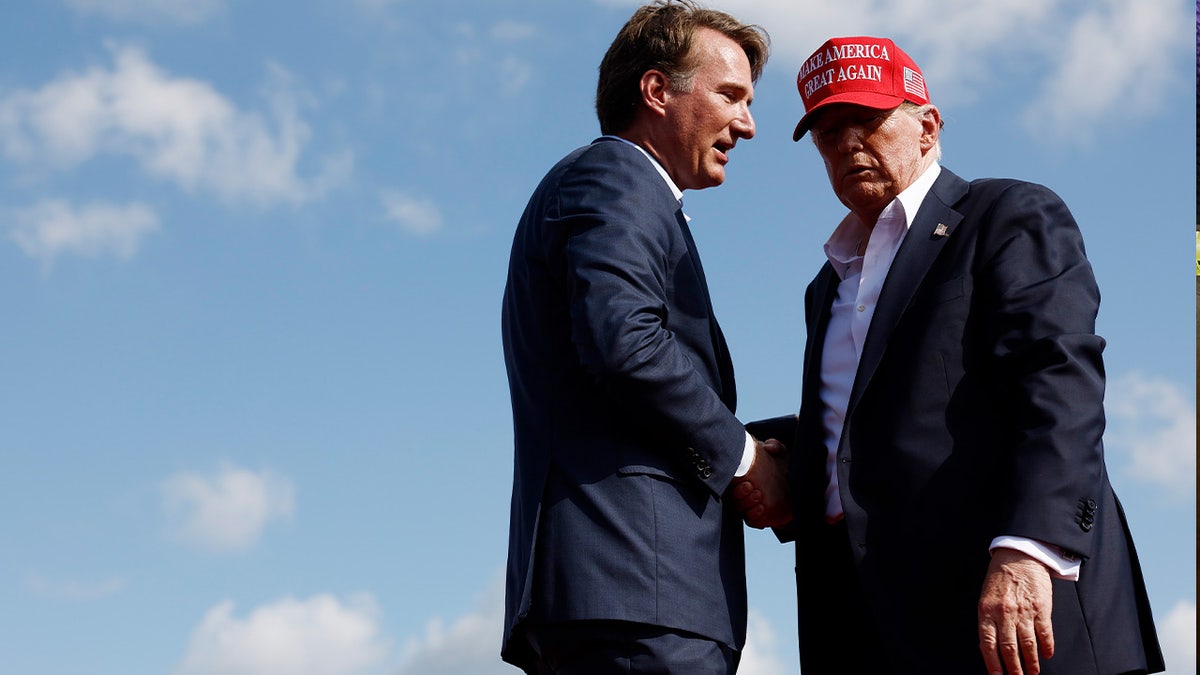
Former President Trump, a Republican presidential candidate, shakes hands with Virginia Gov. Glenn Youngkin during a rally at Greenbrier Farms June 28, 2024, in Chesapeake, Va. (Anna Moneymaker/Getty Images)
“Remember, the biggest problem for our country is not Joe Biden’s personal decline,” Trump said. “It’s that Joe Biden’s policies are causing America’s decline at a level that we’ve never seen before.
“That’s why this November, the people of Virginia and the people of America are going to tell crooked Joe Biden, ‘You’re fired.’”
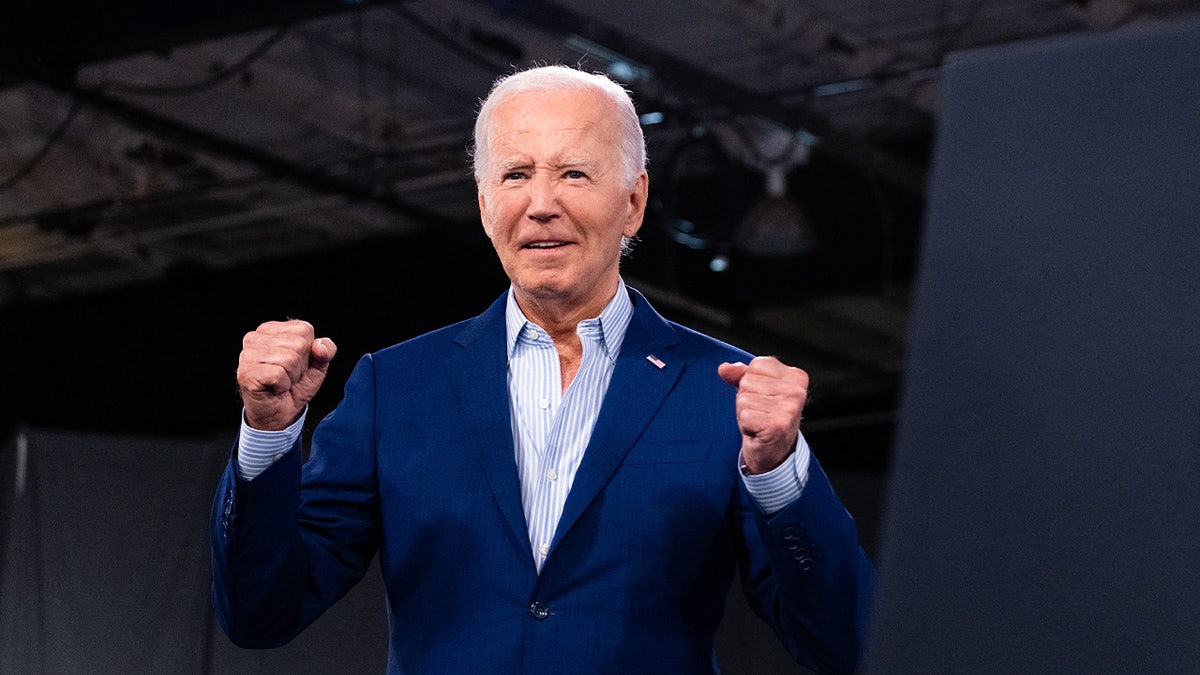
Biden said he is committed to winning the election, brushing aside mounting calls from prominent Democrats to step aside following his disastrous debate against Republican Donald Trump. (Cornell Watson/Bloomberg via Getty Images)
President Biden addressed his campaign performance at a rally in Raleigh, North Carolina, saying, “I don’t debate as well as I used to.
BIDEN’S INNER CIRCLE SILENT AS PARTY REELS FOLLOWING ‘EMBARRASSING’ DEBATE PERFORMANCE
“I know how to do this job. I know how to get things done,” he told a roaring crowd that chanted “Four more years.”
“The choice in this election is simple,” Biden said. “Donald Trump will destroy our democracy. I will defend it.”
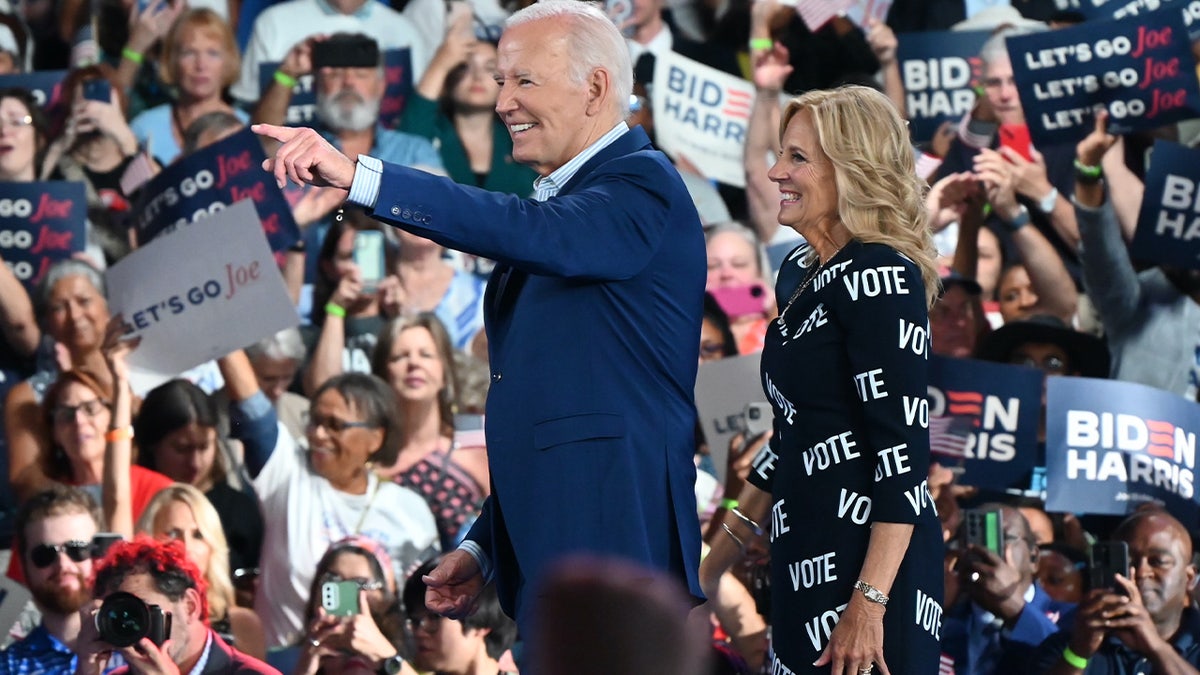
President Biden and first lady Jill Biden delivered remarks at a campaign rally at the Jim Graham Building at the North Carolina State Fairgrounds in Raleigh, N.C., June 28, 2024. (Kyle Mazza/Anadolu via Getty Images)
Biden’s age and mental acuity have been at the forefront as voters inch closer to Election Day.
Biden, 81, is the oldest president in history and has faced skepticism from voters and Republican lawmakers about his ability to do the job.
Biden would be 86 at the end of a second term, while Trump would be 82.
-

 News1 week ago
News1 week agoTracking a Single Day at the National Domestic Violence Hotline
-

 Fitness1 week ago
Fitness1 week agoWhat's the Least Amount of Exercise I Can Get Away With?
-

 News1 week ago
News1 week agoSupreme Court upholds law barring domestic abusers from owning guns in major Second Amendment ruling | CNN Politics
-

 Politics1 week ago
Politics1 week agoTrump classified docs judge to weigh alleged 'unlawful' appointment of Special Counsel Jack Smith
-

 Politics1 week ago
Politics1 week agoSupreme Court upholds federal gun ban for those under domestic violence restraining orders
-

 World5 days ago
World5 days agoIsrael accepts bilateral meeting with EU, but with conditions
-
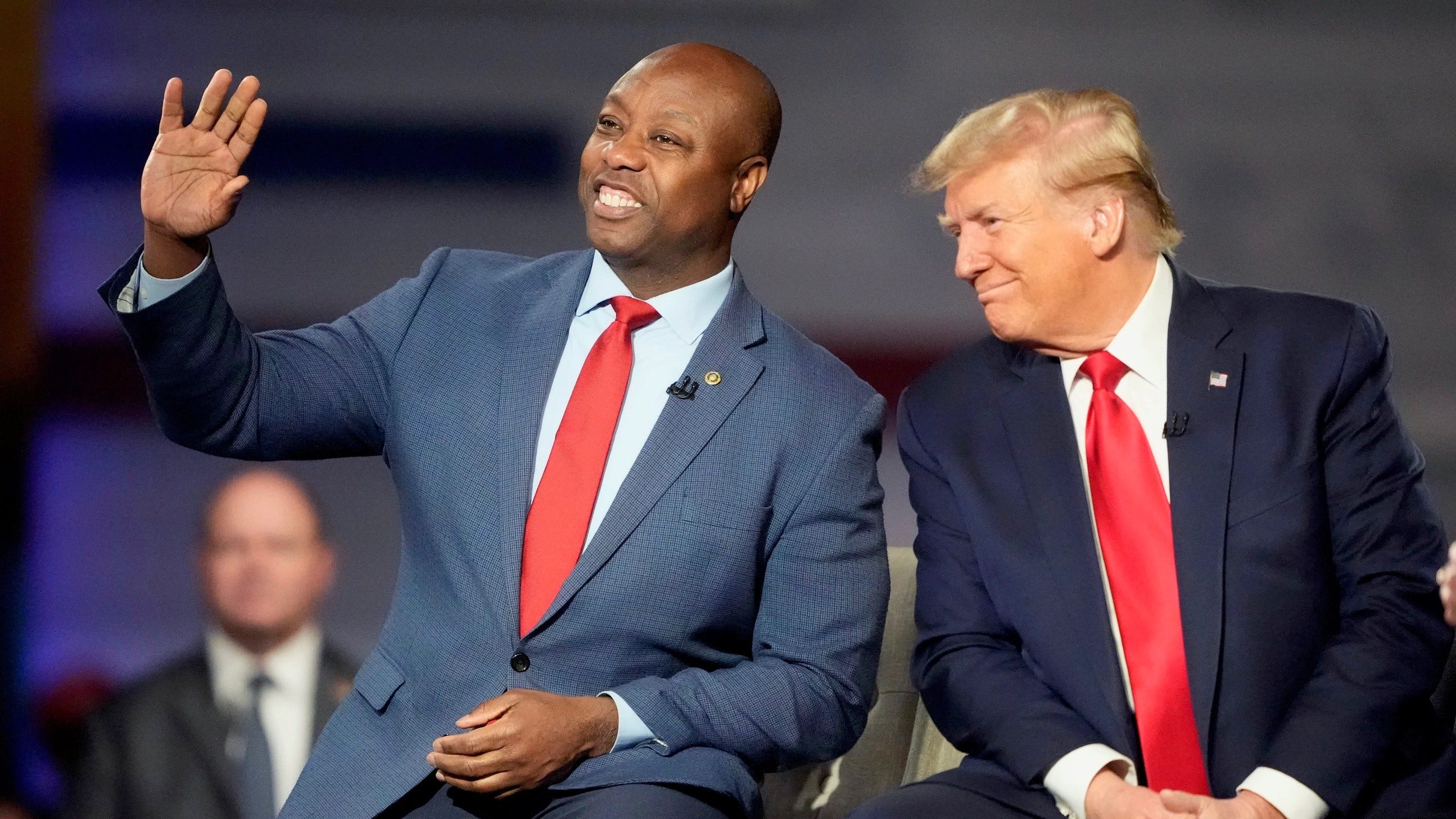
 Politics1 week ago
Politics1 week agoTrump VP hopeful proves he can tap into billionaire GOP donors
-

 World1 week ago
World1 week agoInfluencers and politicians – meet the most connected lawmakers
/cdn.vox-cdn.com/uploads/chorus_asset/file/25510721/1728635496.jpg)
